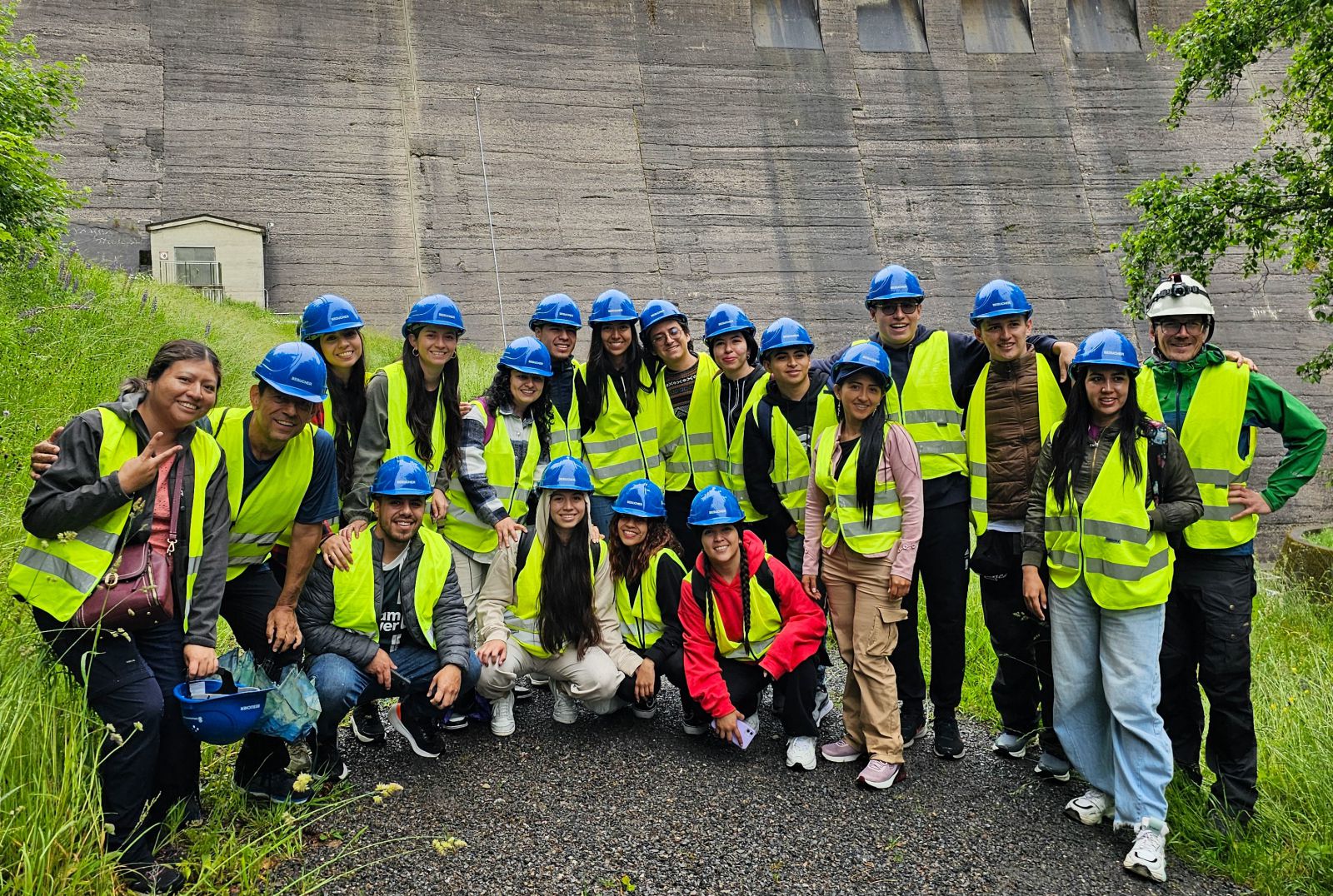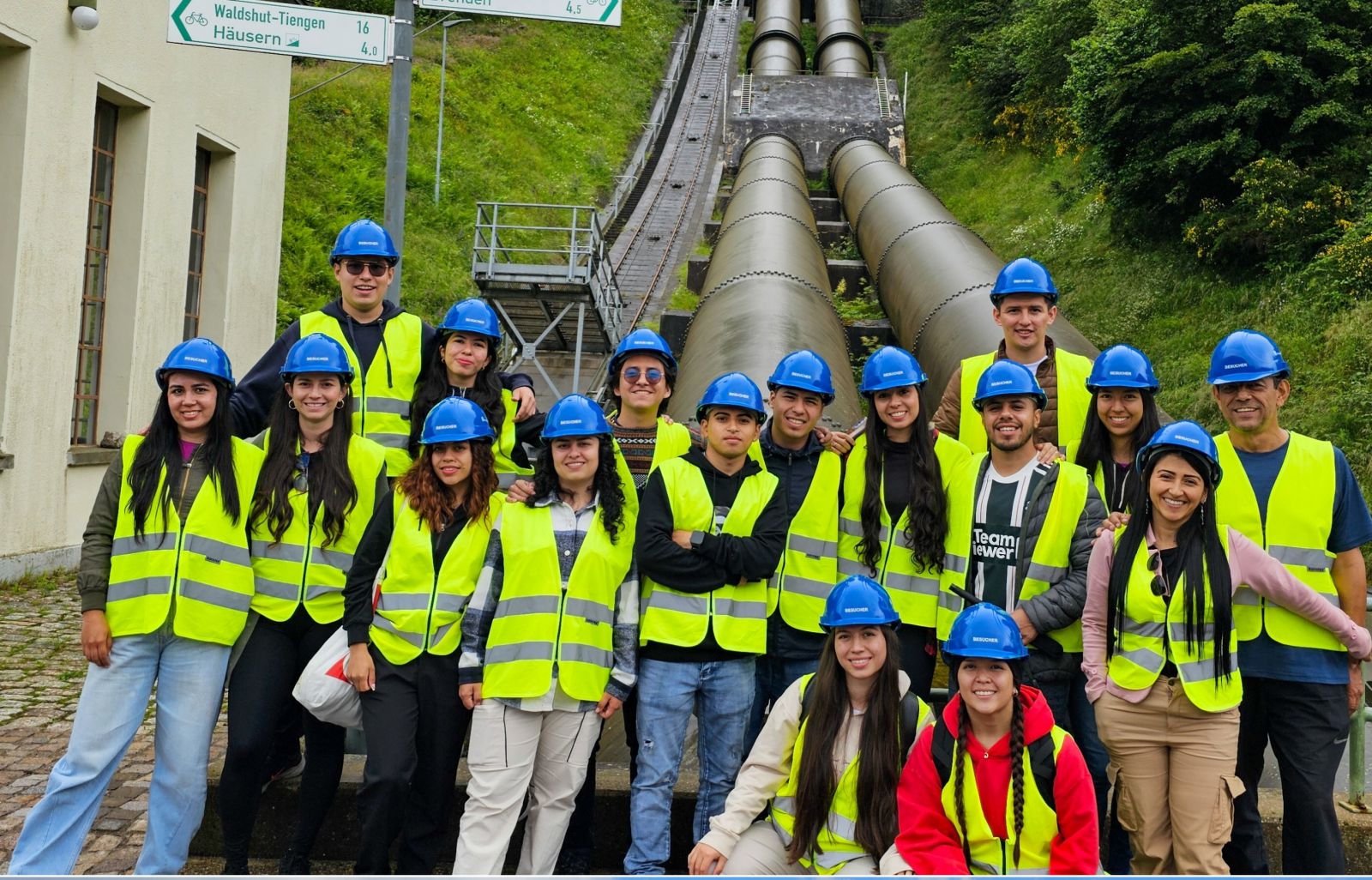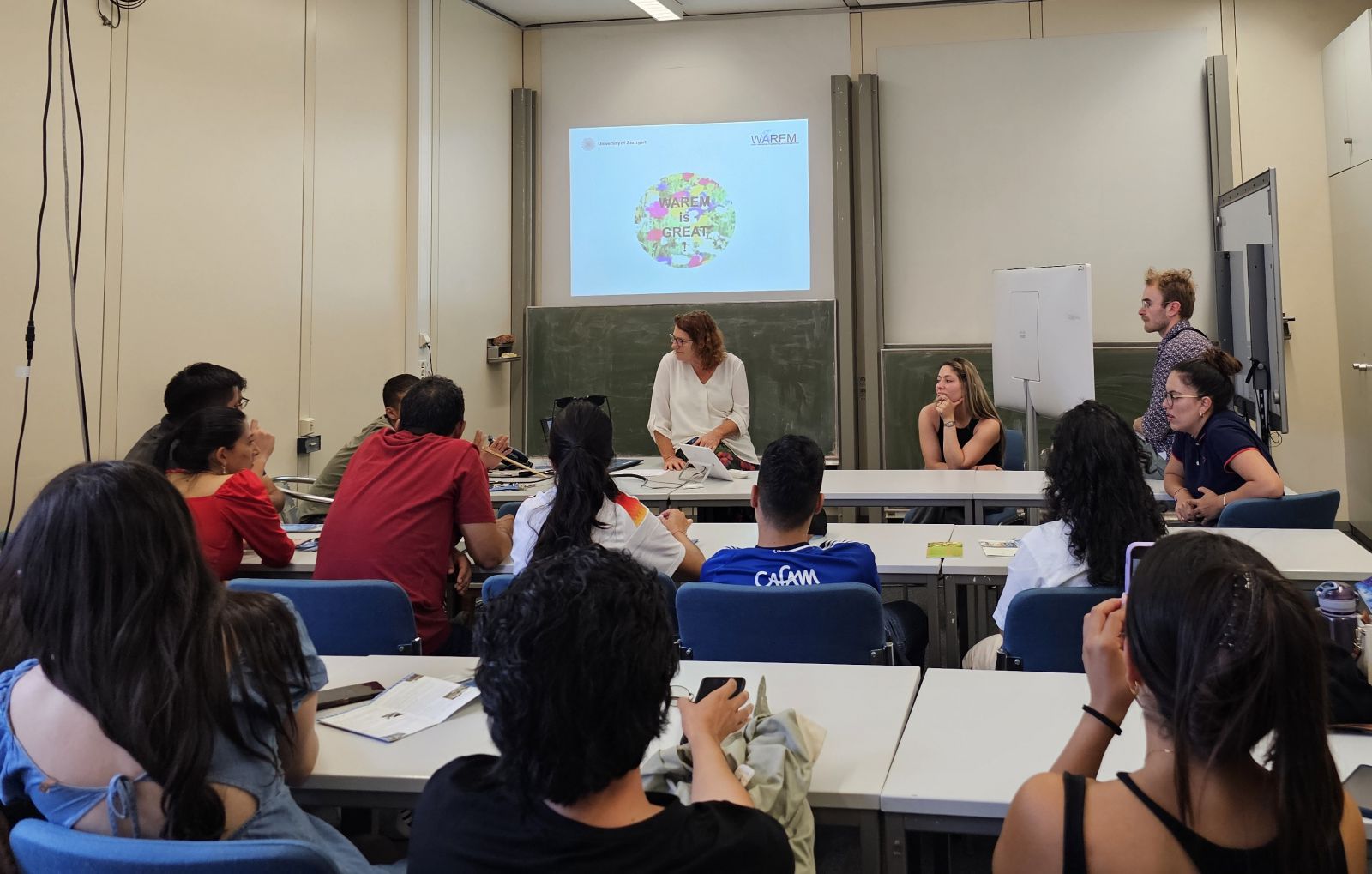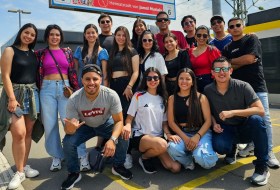News
Unicauca Researchers Benefit from German Academic Exchange Service (DAAD) Scholarship
From June 14 to 29, members of the HydroInnovation Research Group and the Hydraulic and Hydrology Research Group conducted a cultural and academic exchange with four German universities.
Civil and Environmental Engineering students, unified by the HydroInnovation Research Group and the research group affiliated with the Hydraulic Department of the Faculty of Civil Engineering, coordinated by professors Felipe Agredo and Carlos Gallardo and assisted by Professor Andrea Bolaños, received a scholarship from the German Academic Exchange Service (DAAD) as part of the "Study Visits by Groups of Foreign Students" project. This scholarship involved a cultural and academic exchange through visits to four German universities.
The participating students were: Isabella Agredo, Kelly Aguirre, Vanessa Aguirre, Danilo Bolaños, Sebastián Cifuentes, Santiago Díaz, Dayanna Jiménez, Poliuxy León, Ana María Muñoz, Daniela Ortiz, Mildre Pantoja, Juan Vivas, and Laura Zúñiga.

Provided photo
The main focus of the trip was Hydraulic Engineering and its relationship with Civil and Environmental Engineering. The academic reason was to experience the high-level German engineering education system. The group aimed to delve into the academic environment of the top-ranked universities in their field of interest, interact with courses and lectures in another language, observe demonstrations and experiments in state-of-the-art laboratories, and participate in field trips to some of Europe's most significant hydraulic works. To enrich their experience, technical visits included the three pumped-storage hydroelectric power stations forming the Schluchsee group in the Black Forest, southwestern Baden-Württemberg, managed by Schluchseewerk AG. Additionally, they visited the Waterway Junction; the historic Shiplift; Schleuse Rothensee; Rothensee boat lift; and the Magdeburg Water Bridge in Magdeburg.
Additionally, presentations were made about Universidad del Cauca, the Faculty of Civil Engineering, the Hydraulic Department, its graduate programs related to Water Resources: "Specialization in Water Resources Engineering" and "Master's in Hydraulic and Hydrological Engineering"; the Hydraulic Laboratory, the automated weather station; and especially the "Hydraulic and Hydrology" research group and its research seedbed "HydroInnovation." The students presented six of their ongoing research projects, endorsed by the Vice-Rector's Office for Research, some of which had also been presented at the XXV National Seminar on Hydraulic and Hydrology of the Colombian Society of Engineers in Bogotá, a week before the trip.
Environmental Engineering student Dayanna Jiménez states that the visit had four main objectives, all of which were successfully achieved:
- 1. Establish and/or strengthen ties between Universidad del Cauca and German universities.
- 2. Facilitate the acquisition and exchange of knowledge and experiences in the specific training area of the student group through visits to four higher education institutions.
- 3. Promote interdisciplinary meetings and exchanges with German professors and students.
- 4. Understand aspects of Germany’s economic, political, and cultural life in the context of Hydraulic and Hydrological Engineering.
-

- Provided photo
According to Professor Agredo, a distinguishing factor of this trip was being able to trace the route from west to east, experiencing immersion in two sectors with some cultural differences due to historical events. The group found it very interesting to visit major cities for their significance or history in Germany, such as Frankfurt, the country's financial center; Heidelberg, known as Germany’s unofficial intellectual capital; to travel along the Rhine River, the most used waterway in the European Union; and then to Stuttgart, known as the star city for its cultural wealth. They also visited Nuremberg, known as Germany’s jewel city, famous for its history and significant events of the last century; Dresden, known as the Baroque and Eastern culture city; and Magdeburg, the Elbe metropolis with 1200 years of history. To conclude the tour, although not academically, the group visited Berlin, the Phoenix city, known for its multicultural lifestyle.
Professor Gallardo mentions that the group’s motivation for applying for funding and undertaking the trip was to obtain feedback on their research projects, considering the expertise of specialists from top-tier universities. Additionally, they aim to continue studies at German universities, making an academic and cultural approach crucial for addressing the academic project, linking it with scholarships such as DAAD, Erasmus Mundus, Colfuturo, ICETEX, among others. They also sought to learn about the master’s programs offered by each university, such as Water Technology (Heidelberg), Master of Science Program WAREM (Stuttgart), GroundwatCH, Flood Risk Management, and MSc Hydroscience and Engineering (Dresden), and Water Engineering (Magdeburg).

Provided photo
Professor Bolaños concludes that the project provided multiple opportunities to establish academic and research contacts that will enrich the students' education. Letters of intent were obtained to formalize agreements with their alma mater, while experiencing one of the most advanced educational systems in Hydraulic Engineering. This will be directed to the Office of Interinstitutional and International Relations (ORII).
The Hydraulic Department trusts that this experience will allow the group to grow academically and personally, reaching a new level in their education and developing a deeper understanding of hydraulic engineering in a global context. They also extend their thanks to the hosts who made the group’s visit possible: Prof. Dr. Ulrike Gayh, M.A., M.Sc. Anne Weiß, Daniel Stolz, Lisa Odparlik, M.Sc. Karen Rojas Gómez, Dipl.-Ing. Kirstin Neumann, and all their colleagues from each of the German universities and companies.
Written by:
Communication Management Center


